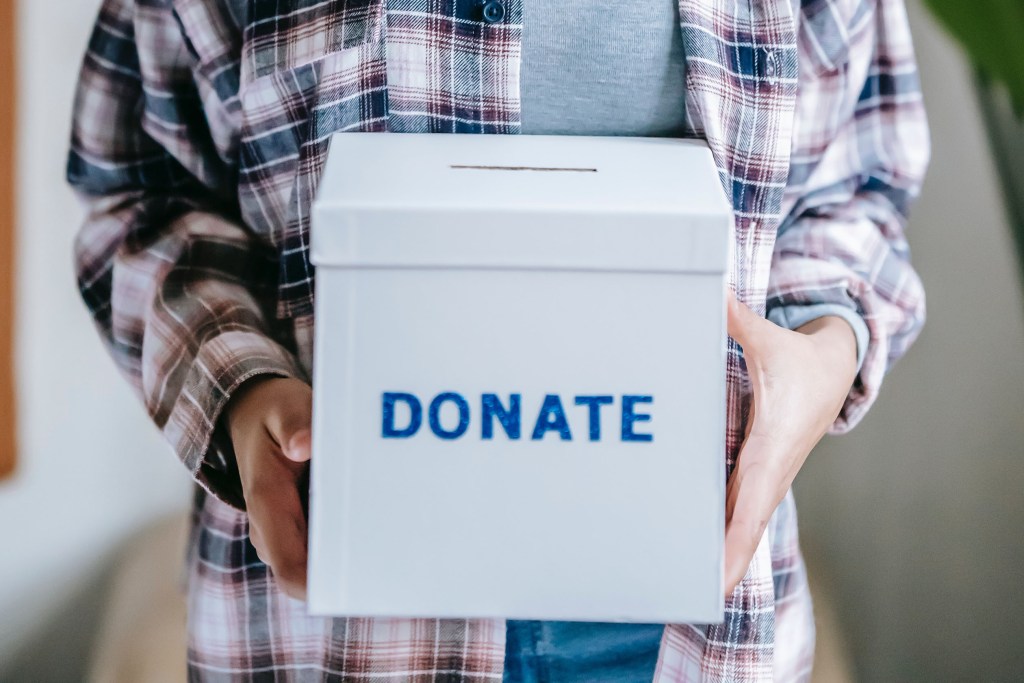When you find a cause you care about, you want to do everything you can to help. You may decide you want to tell all your friends about the issue, volunteer, or donate money. But when there’s money involved, there’s room for scammers to move in. Fraudulent groups often pose as nonprofits so they can take advantage of people’s kindness and pocket the cash. Use the tips below to avoid charity scams and ensure your donation is actually going toward a good cause.

Always research the charity before donating
Before giving money to any organization, do some research online to ensure that they’re legitimate. A quick Google search of the name should bring up the charity’s website. On the site, they should clearly explain the organization’s purpose, goals, and history of success. If they are vague about any of these factors, consider donating to a different group. Legitimate nonprofits are also registered public 501(c)(3) organizations. They should be able to provide you with an EIN if asked.
Sometimes fraudulent groups will create charities with similar names to well-known organizations. You can verify their genuineness by asking for their Employer Identification Number (EIN). Alternatively, you can use the Tax Exempt Organization Search (TEOS) tool from the IRS to research the group’s current tax-exempt status. There are also a handful of websites that verify and rate the legitimacy of charitable organizations. Before donating, look up the nonprofit on one of these websites:
Don’t lead with your emotions
In order to gain public support and increase donations, nonprofits often try to prompt an emotional response from people. They may use evocative images or touching stories to generate urgency and garner an empathetic response. It’s only natural to feel this way, but it’s always best to lead with your head when money’s involved, not your heart. To avoid making an emotional decision, always take time to think before giving. Instead of making a reactive choice to the nonprofit’s emotional appeal, take a step back, do your research, and really consider if and how much you want to donate.

Be mindful of how they accept money
If someone is trying to get you to donate by paying in cash, wiring money, or giving a gift card, there’s a good chance it’s a scam. It’s safer to pay by credit card or check since it’s easier to get a refund if it turns out to be fraudulent. And, as always with making an online payment, make sure you know who you’re giving your information to. Be sure to keep records of all your donations too. Review your bank statements to ensure you’re only being charged what you agreed to.

Give directly
Frequently, you may see a social media post, receive a telemarketing call, or be exposed to another fundraising effort that is raising money on behalf of an established organization. Even though the charity is legitimate, the person collecting donations may not be. Instead of clicking on the donation link or giving money right away, open a new tab in your web browser and navigate directly to the nonprofit’s website. By cutting out the middleman, you can decrease your risk of fraud, share your private information with fewer people, and ensure that all of your money is going directly to the charity as quickly as possible.
Know the tricks scammers use
There are a few common signs you should look out for that could indicate you’re dealing with a scammer.
- They try to rush you into making a decision and giving them money.
- They change their caller ID to make it look like the phone call is coming from a local area code.
- They use names that sound like real nonprofits.
- They make ambiguous and sentimental claims without any specific information on how the money will be used.
- They claim that your donation is tax-deductible without providing documentation.
- They may try to trick you into paying them by sending you a thank you for a donation you didn’t make.
Unfortunately, charity fraud happens all too frequently. While there are plenty of legitimate nonprofits, there are also many who would take advantage of your goodwill. By knowing what red flags to look for, doing your research prior to donating, and using the tips above, you can successfully avoid scams and find organizations that are worthy of your time and money. And be sure to report any scams you find to the Federal Trade Commission so the fraudsters can’t scam anyone else.
BlissMark provides information regarding health, wellness, and beauty. The information within this article is not intended to be medical advice. Before starting any diet or exercise routine, consult your physician. If you don’t have a primary care physician, the United States Health & Human Services department has a free online tool that can help you locate a clinic in your area. We are not medical professionals, have not verified or vetted any programs, and in no way intend our content to be anything more than informative and inspiring.



